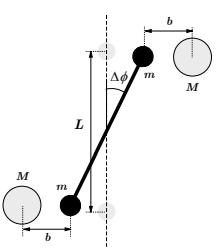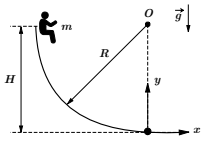Leia o texto destacado para responder à questão.
Meritocracy has become a leading social ideal. Politicians across the ideological spectrum
continually return to the theme that the rewards of life—money, power, jobs, university
admission—should be distributed according to skill and effort. The most common metaphor is the
‘even playing field’ upon which players can rise to the position that fits their merit. Conceptually
and morally, meritocracy is presented as the opposite of systems such as hereditary aristocracy, in
which one’s social position is determined by the lottery of birth. Under meritocracy, wealth and
advantage are merit’s rightful compensation, not the fortuitous windfall of external events. And
most people don’t just think the world should be run meritocratically, they think it is
meritocratic. However, although widely held, the belief that merit rather than luck determines
success or failure in the world is demonstrably false. This is not least because merit itself is, in
large part, the result of luck. Talent and the capacity for determined effort, sometimes called
‘grit’, depend a great deal on one’s genetic endowments and upbringing.
Perhaps more disturbing, simply holding meritocracy as a value seems to promote discriminatory
behaviour. The management scholar Emilio Castilla at the Massachusetts Institute of Technology
and the sociologist Stephen Benard at Indiana University studied attempts to implement
meritocratic practices, such as performance-based compensation in private companies. They found
that, in companies that explicitly held meritocracy as a core value, managers assigned greater
rewards to male employees over female employees with identical performance evaluations. This
preference disappeared where meritocracy was not explicitly adopted as a value.
This is surprising because impartiality is the core of meritocracy’s moral appeal. The ‘even
playing field’ is intended to avoid unfair inequalities based on gender, race and the like. Yet Castilla and Benard found that, ironically, attempts to implement meritocracy leads to just the
kinds of inequalities that it aims to eliminate. They suggest that this ‘paradox of meritocracy’
occurs because explicitly adopting meritocracy as a value convinces subjects of their own moral
sincerity. Satisfied that they are just, they become less inclined to examine their own behaviour
for signs of prejudice.
As with any ideology, part of its draw is that it justifies the status quo, explaining why people
belong where they happen to be in the social order. It is a well-established psychological principle
that people prefer to believe that the world is just.
Fonte: https://bigthink.com/. Publicado em 23/03/2019. Acesso em 20/08/2021. Adaptado.


 , ou seja,
, ou seja,  , sendo
, sendo  2,0 m/s e
2,0 m/s e  = 1,0 m/s, calcule o tempo necessário
para ela atingir a posição z = 1,0 m.
= 1,0 m/s, calcule o tempo necessário
para ela atingir a posição z = 1,0 m. 



 passa por O, então
passa por O, então  = _____.
= _____. 